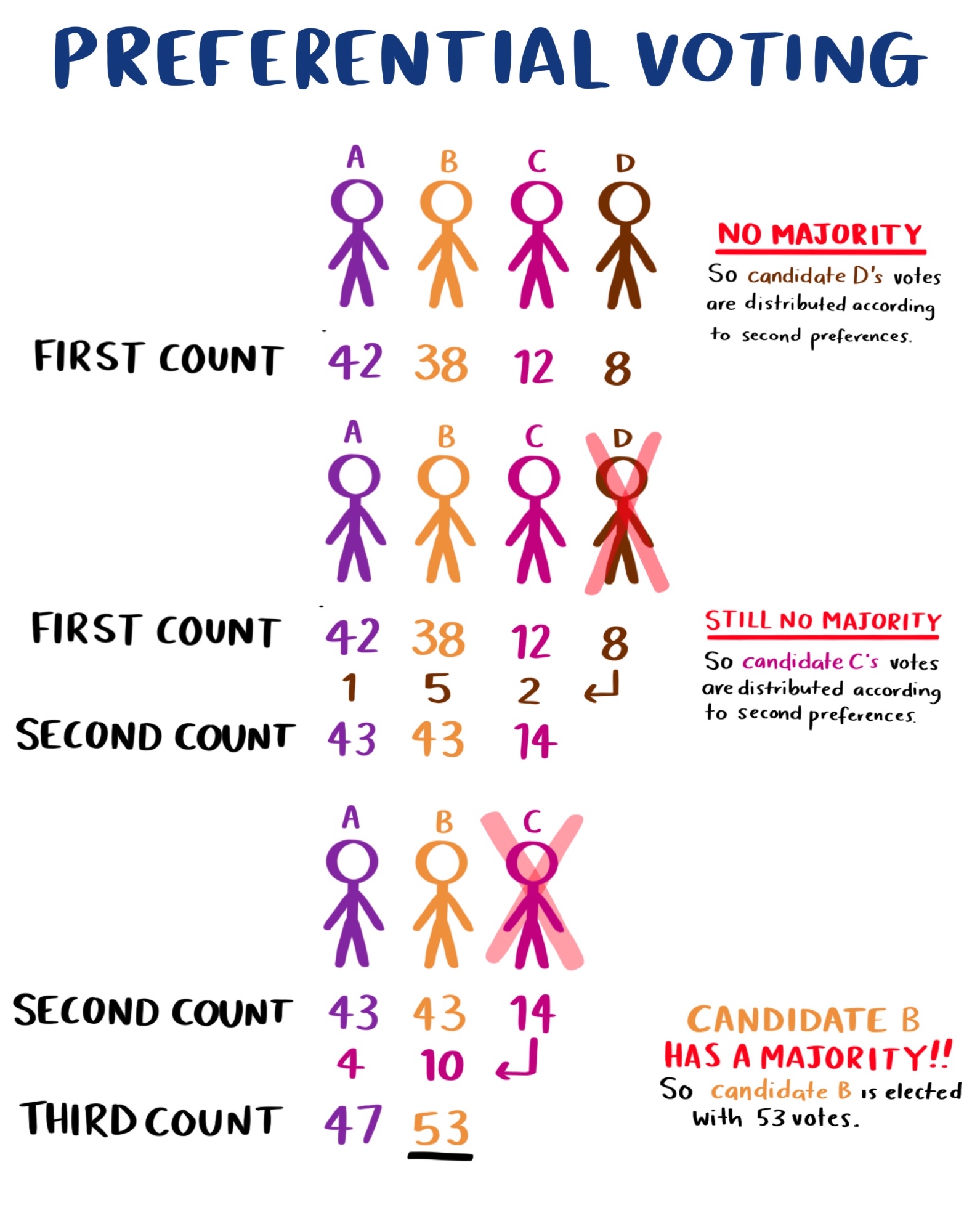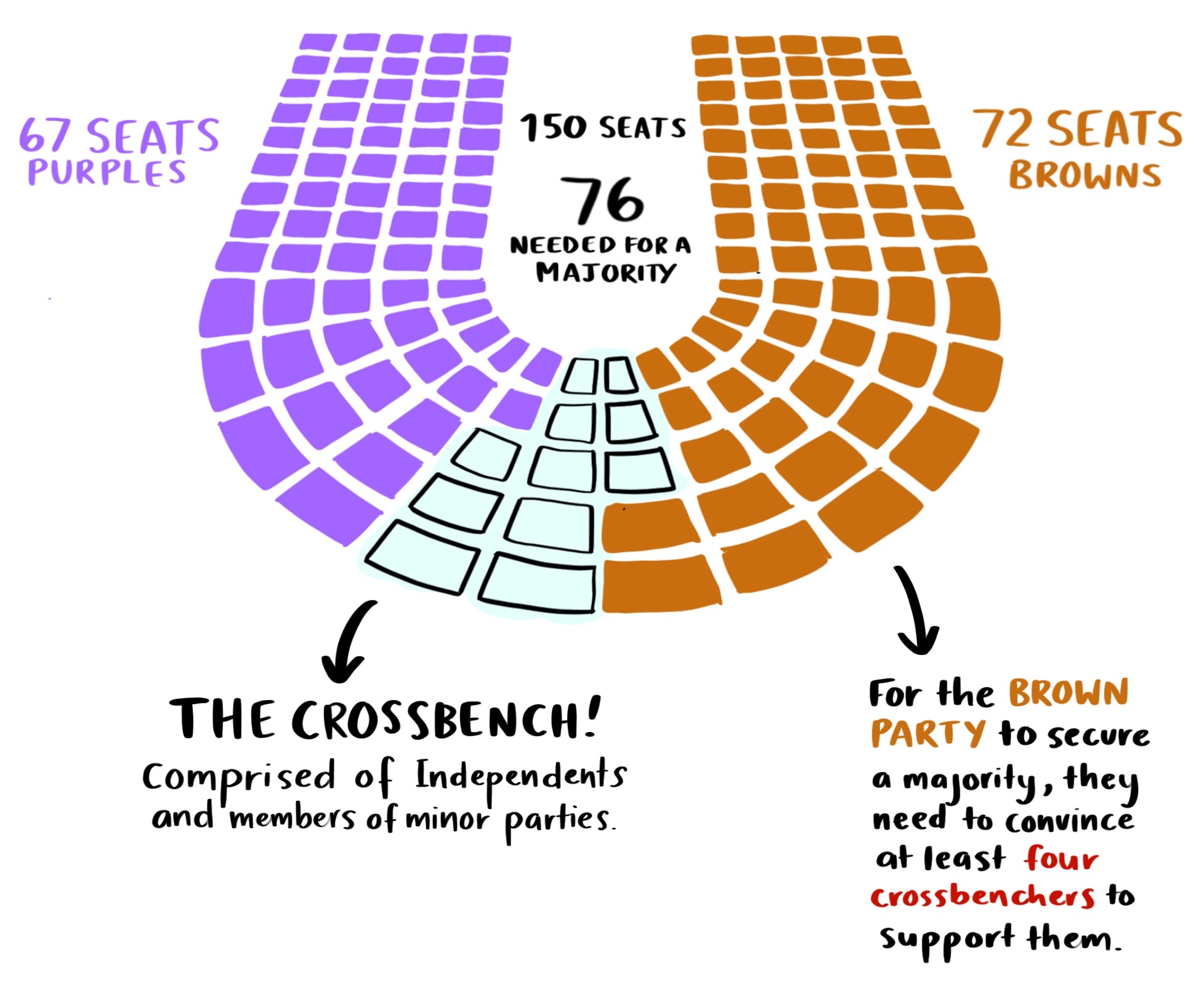The Australian Federal election campaign is in full swing, ahead of us voting at the polls on 21st May. Amongst all of the debates, political ads, posters and pamphlets, you may have noticed that this year there are A LOT of Independent candidates - i.e. candidates that are not associated with any political party. In particular, you might have heard the term "teal independents" being thrown around - a sizable group of Independents, mostly women, who have made climate change the number one issue for their campaign.
No politician should be in power if they do not have climate action at the top of their agenda, and it seems like the Independent candidates are listening.
The Australian election is often portrayed as a two party race between the Liberal Party and the Labor Party. However, at the last federal election in 2019, one in four Australians cast a first-preference vote for a minor party, or independent candidate - that means 25% of Australians felt that they were better represented by a candidate outside of the major parties.
So why might you want to consider voting for an independent candidate over someone from an established party this election? Keep on reading.
How does the Australian parliament work?
Australia is a representative democracy, meaning that citizens vote to elect officials to craft, debate, and sign laws on their behalf. Unlike the US, we do not vote for a president, instead, we vote for local representatives, or members of parliament (MPs).
The party with the most number of elected members of parliament secures government either outright, because they have the majority of seats in parliament (majority government), or through forming coalitions with other minor parties or independents (minority government) - more on this later. The head of the party that secures government becomes Prime Minister.
A defining feature of our electoral process is that we use a system of preferential voting. This means that rather than just ticking a box next to our favourite candidate, we instead rank the candidates in order of who best aligns with our values. This means that it is nearly impossible to cast a wasted vote in our elections!
So how does it work? Preferential voting systems are majority systems, meaning that a candidate must receive an absolute majority (more than 50% of the total votes cast) to be elected. If after the first count, no candidate has an absolute majority, then preferences are distributed until an absolute majority is reached. Here is a diagram that explains it clearly.

So if there is an amazing independent candidate in your electorate who is passionately fighting for climate action, you can preference them first, before the other candidates from major parties. If they fail to secure enough votes in the first round, your second preference (and third, or even forth, depending on how many rounds of counting need to be conducted) will be taken into account.
Not only that, but if the independent that was running on climate action got a significant amount of votes, but not quite enough to get over the line, it will still show the winning candidate that climate action is something their electorate takes seriously.
Independents work for their community, not their party
Unlike candidates from major parties, Independents will never have to choose between voting with their constituents, or voting with their party. Members who belong to political parties are expected to follow the party line on most votes, meaning that if a political party has officially adopted policies or positions, members of the party are expected to support them. This becomes a problem if the values of the party more broadly do not align with those of an electorate's constituents.
However, this is a huge deal for those who live in an electorate with an independent MP, because it means that they wield more power, and can be confident that their voice will be genuinely represented in parliament.
It is still important to thoroughly research the donors of any independent candidates you wish to support, and ask them hard hitting questions to make sure that they will genuinely fight for ambitious climate action if elected. But if you're confident that they are the real deal - you can rest easy knowing that party politics will not prevent the values of your community being represented in parliament.
Independents have serious power in a hung parliament/minority government
While it is too early to say whether this election will result in a hung parliament (as it did in 2010), it is definitely a possibility - and if that does happen, Independents will become powerful players in parliament. This is because of the power of the crossbench.
The crossbench is the term used to describe a group of seats situated between the government and opposition in the Senate and House of Representatives, where elected representatives who are not a member of either major party sit. When the party in government does not have majority support in the Senate, the crossbench ultimately holds the balance of power, and decides whether a bill is passed or rejected.
A hung parliament occurs when no party (or coalition) achieves a majority in parliament (over 50% of seats). Thus, in order to form a government, major parties are forced to make deals with Independents and minor parties, in order to secure their support and form a coalition. This means that in the case of a hung parliament, Independents who have climate action at the top of their agenda can leverage their unique position, and force major parties to adopt policies that support stronger climate action such as deeper 2030 emissions reductions targets.
Below is a diagram of what a hypothetical hung parliament might look like.

In the above diagram, the Brown Party has the most seats, but not an absolute majority, resulting in a Hung Parliament. For the Brown Party to form a government, they will need to convince at least four crossbenchers to support them, and form a coalition. If the crossbench is full of climate positive Independents, then in order to secure their support, the Brown Party will need to make concessions, and demonstrate that they will put forward legislation that supports stronger action on climate change.
In the case that a minority government is formed, Independents on the crossbench will continue to hold significant power when passing legislation, because the government cannot rely on the support of their party alone to get bills passed. A strong crossbench, full of Independent MPs fighting for climate justice would be able to genuinely fight for legislation that elevates climate action, and reject bills that are detrimental to the environment and climate justice.
At the end of the day, whether or not you vote for an Independent candidate this election, or a candidate from a major, or minor party is not the central issue - the most important thing is that you vote for a candidate that genuinely represents your values, and will fight hard for climate action, and to secure a sustainable future for the future generations of Australia.
Read this next: I want my vote to count for nature: how do the major parties stack up?
Image from Unsplashed

